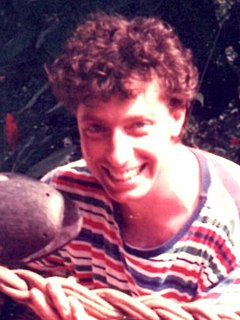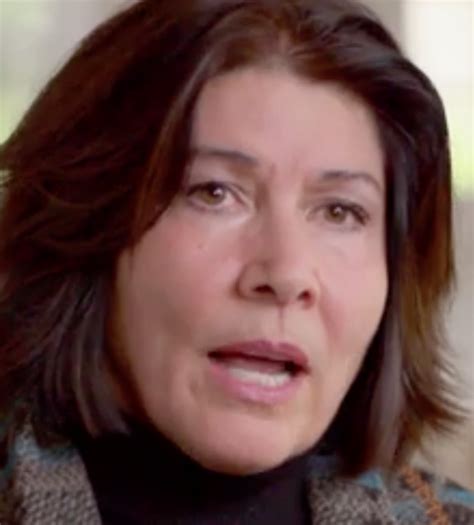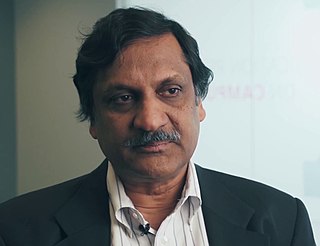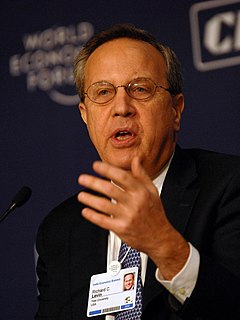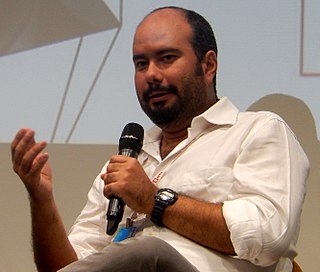A Quote by Jeremy Narby
An indigenous culture with sufficient territory, and bilingual and intercultural education, is in a better position to maintain and cultivate its mythology and shamanism. Conversely, the confiscation of their lands and imposition of foreign education, which turns their young people into amnesiacs, threatens the survival not only of these people, but of an entire way of knowing. It is as if one were burning down the oldest universities in the world and their libraries, one after another — thereby sacrificing the knowledge of the world's future generations.
Quote Topics
After
Another
Better
Bilingual
Burning
Burning Down
Cultivate
Culture
Down
Edge Of The World
Education
Entire
Foreign
Future
Future Generation
Future Generations
Generations
Imposition
Indigenous
Indigenous Culture
Intercultural
Knowing
Knowledge
Knowledge Of The World
Lands
Libraries
Maintain
Mythology
Oldest
Only
People
Position
Shamanism
Sufficient
Survival
Territory
Thereby
Turns
Universities
Way
Were
Which
World
Young
Young People
Related Quotes
Public education is the key civil rights issue of the 21st century. Our nation's knowledge-based economy demands that we provide young people from all backgrounds and circumstances with the education and skills necessary to become knowledge workers. If we don't, we run the risk of creating an even larger gap between the middle class and the poor. This gap threatens our democracy, our society and the economic future of America.
What is education? Properly speaking, there is no such thing as education. Education is simply the soul of a society as it passes from one generation to another. Whatever the soul is like, it will have to be passed on somehow, consciously or unconsciously, and that transition may be called education. ... What we need is to have a culture before we hand it down. In other words, it is a truth, however sad and strange, that we cannot give what we have not got, and cannot teach to other people what we do not know ourselves.
In every Indigenous community I've been in, they absolutely do want community infrastructure and they do want development, but they want it on their own terms. They want to be able to use their national resources and their assets in a way that protects and sustains them. Our territories are our wealth, the major assets we have. And Indigenous people use and steward this property so that they can achieve and maintain a livelihood, and achieve and maintain that same livelihood for future generations.
We have never owned, as a country, the damage done not only to people who were enslaved but to future generations in which they were treated. I think that has damaged the future of many African-American people. Some have risen above it quite nobly, but it has impacted generations, and we have to be able to own that as part of the past.
During the last century, and part of the one before, it was widely held that there was an unreconcilable conflict between knowledge and belief. The opinion prevailed amoung advanced minds that it was time that belief should be replaced increasingly by knowledge; belief that did not itself rest on knowledge was superstition, and as such had to be opposed. According to this conception, the sole function of education was to open the way to thinking and knowing, and the school, as the outstanding organ for the people's education, must serve that end exclusively.
I have great love and respect for Russian history and culture. But the world is changing and Russia is too. Russia is part of the modern world, not the world of the past but the modern world. And I believe it has an even greater future than some other countries that can't take care of their young people, of the new generations, of their children, and believe that they can just let things slide.
We do not merely give a religious education because that would seem to imply the possibility of some other education, a secular education, for example. But we hold that all education is divine, that every good gift of knowledge and insight comes from above, that the Lord the Holy Spirit is the supreme educator of mankind, and that the culmination of all education (which may at the same time be reached by a little child) is that personal knowledge of and intimacy with God in which our being finds its fullest perfection.
